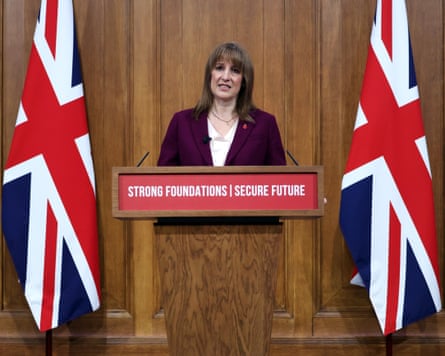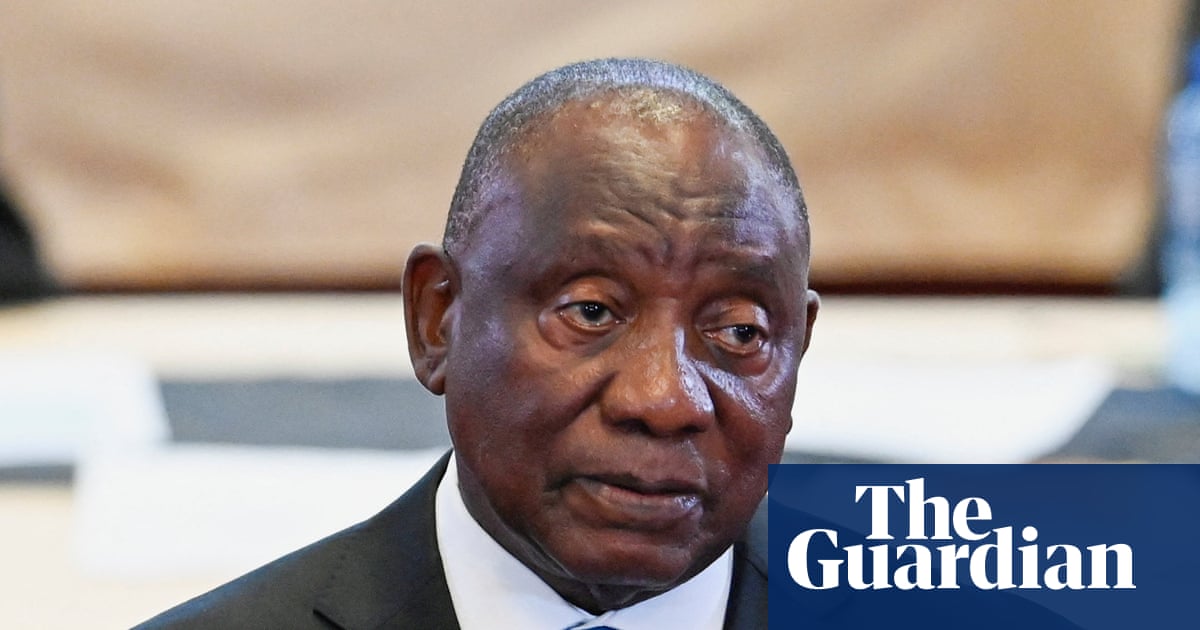Rachel Reeves is considering slashing funding for more energy efficient homes to pay for a reduction in energy bills, sources have told the Guardian, as the chancellor looks for ways to ease the cost of living in this month’s budget.
Reeves is finalising a multi-billion pound energy support package that is likely to cut taxes and green levies from people’s bills as she looks to save as much as £170 from the average bill.
The chancellor is hoping her focus on reducing energy bills will help bolster Labour’s slump in the polls, dent the appeal of Reform UK and mitigate the impact of widely expected tax rises in the autumn budget.
In a rare pre-budget speech on Tuesday, the chancellor signalled she was prepared to make controversial decisions, as she and the prime minister debate breaking a pre-manifesto commitment and raising income tax.
She said: “I could do what previous governments have done, which is to sweep those challenges under the carpet, to cut capital spending, to make the numbers up.
“But then we’d be back here in a year, in five years’ time, with productivity still on its knees, growth underperforming, national debt continuing to rise. So I’m being honest with people.”
But she added that easing the cost of living would be one of her three main priorities, alongside reducing the national debt and protecting the NHS.
At the early morning Downing Street event, Reeves hinted at tax rises, adding that “each of us must do our bit” for the country’s future. “If we have to build the future of Britain together, we will all have to contribute to that effort.”
“I have to face the world as it is, not the world that I want it to be. And when challenges come our way, the only question is how to respond to them, not whether to respond or not.”

The chancellor added the economic challenges facing the UK – including global tariffs, sticky inflation, volatile supply chains and defence spending – had gotten worse since last year’s financial statement.
Cabinet ministers, braced for a consequential tax-raising budget later this month, warned that the public need to feel the direct benefit of any increases.
“We have to be absolutely crystal clear if we’re doing this about how we link it to what it delivers for voters. What are we doing for them if we do this?” one minister said. “I’m not saying it’s not high stakes. But it had better fucking work,” another added.
A third minister said: “People expect Labour governments to fix public services, and even though they might not like it they know the fixing has to be paid for somehow. They also know that boxing ourselves in on tax is one of the stupidest things that any opposition party has ever done.”
In a sign of internal government concerns over the possible market reaction, Labour has organised a series of pre-budget “economic insight sessions” for Labour MPs with economists and former ministers in recent weeks.
Reeves and the prime minister have identified high energy bills as being a major source of financial pressure for voters and are planning a relief package likely to cost about £3bn a year.
Keir Starmer is understood to be particularly worried about the impact of an expected £100 rise in energy bills next spring, and wants to do enough to eliminate that and bring down costs even further.
A major part of the plan, insiders say, will be eliminating the 5% VAT rate on part or all of domestic energy bills, in a move that experts say would cost £2.5bn a year and bring down bills by an average of £86.
Some economists warn such a move would risk benefiting those with larger homes and encouraging people to use more energy, but the Treasury is understood to be keen on the idea because it is simple and quick to implement.
Alongside the VAT reduction, Reeves is planning also to reduce or eliminate some of the green levies on bills, which could reduce costs for householders and undercut Reform’s promise to do the same.
However, energy industry insiders warn that raiding energy efficiency funding to help pay for the move would be “disastrous”.
Those consulted on the plans say the chancellor is particularly looking at reducing or eliminating the energy company obligation, under which energy firms help pay for home improvement measures such as insulation and new heating schemes. Last year, the National Audit Office warned of fraud and poor quality in some of the work undertaken under the scheme.
If the programme is reduced or cut entirely, the energy secretary, Ed Miliband, could choose to reallocate money from the £13bn warm homes plan, much of which is earmarked to pay for subsidies for electric heat pumps.
The government decided as recently as June to protect the scheme, but the chancellor is thought to be willing to see it reduced to help bring bills down now.
Reeves is also weighing up cutting other levies, such as the renewable obligation certificate programme, which currently goes up by retail price inflation but could be tied instead to the lower consumer price index.
The Treasury declined to comment on budget speculation, but those in the energy industry warn the plans could backfire in the longer term.
In her speech, the chancellor also accused previous governments of putting “political convenience” before “economic imperative”, raiding capital budgets intended to support the public services to balance the books.
“The problem of the last 14 years is that political expediency always came above the national interest. And that is why we are in the mess that we are in today,” she added.
The cost of UK borrowing fell slightly as the chancellor reiterated her “iron-clad” commitment to her fiscal rules, reassuring the bond markets.
After the speech, Starmer told his cabinet the budget would neither starve the state of cash nor take “risks with more borrowing”, inferring that tax rises are the only option.
Government sources said the prime minister had accepted the necessity of the move. “Even if everything is exploding around him, he has a plan and knows the direction we’re going in,” they added.

 3 months ago
87
3 months ago
87

















































